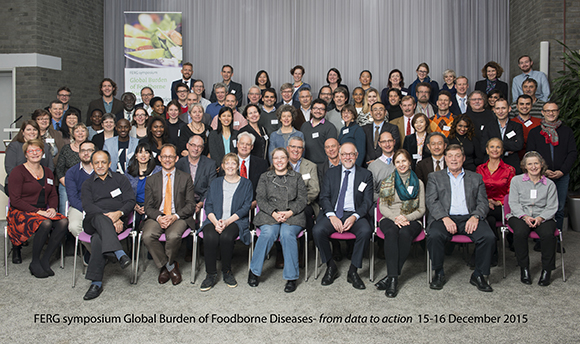Background
The Foodborne Disease Burden Epidemiology Reference Group (FERG) was established in 2007 by the World Health Organization (WHO) under the leadership of WHO’s Department of Food Safety and Zoonoses (FOS). The purpose of the Group was to estimate the global burden of diseases commonly transmitted through food.
FERG was composed of more than 100 internationally renowned experts in a broad range of disciplines relevant to global foodborne disease epidemiology. The activities were grouped in six task forces:
- Enteric Diseases Task Force (EDTF)
- Parasitic Diseases Task Force (PDTF)
- Chemicals and Toxins Task Force (CTTF)
- Source Attribution Task Force (SATF)
- Country Studies Task Force (CSTF)
- Computational Task Force (CTF)

On 15-16 December 2015, the FERG results were officially launched at a symposium in Amsterdam, the Netherlands (click here for the presentations).
The large disease burden from food highlights the importance of food safety, particularly in Africa, South-East Asia and other regions. Despite the data gaps and limitations of these initial estimates, it is apparent that the global burden of foodborne diseases is considerable, and affects individuals of all ages, particularly children under 5 years of age and persons living in low-income regions of the world. By incorporating these estimates into policy development at both national and international levels, all stakeholders can contribute to improvements in safety throughout the food chain. The results are also helping to direct future research activities.
Useful links
https://www.who.int/activities/estimating-the-burden-of-foodborne-diseases
https://www.who.int/foodsafety/foodborne_disease/ferg/en/
https://collections.plos.org/ferg2015
https://www.researchgate.net/project/Foodborne-Disease-Burden-Epidemiology-Reference-Group
Read more
Explore the FERG reports and publications




